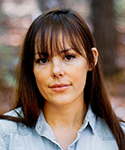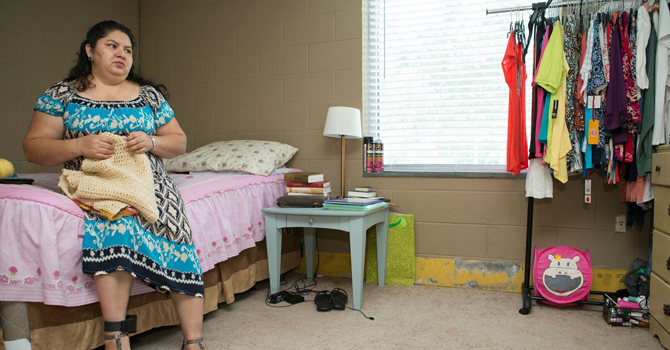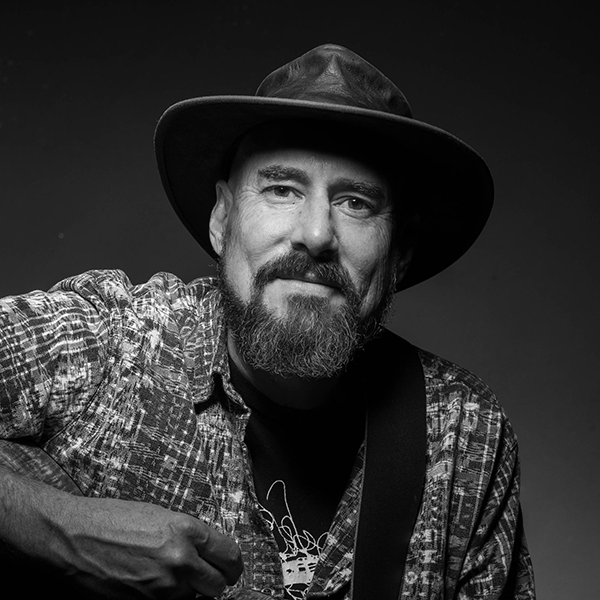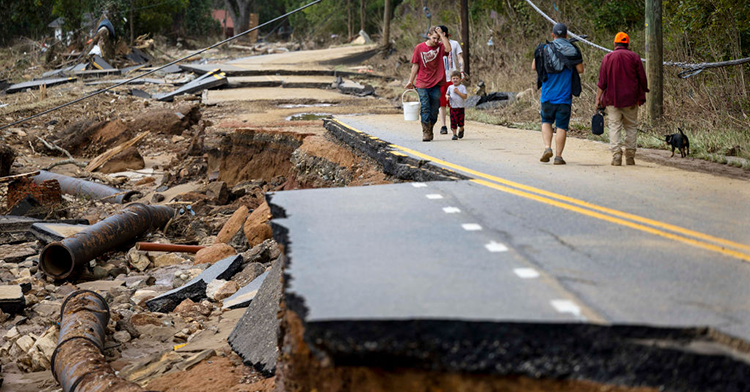“I say to myself, ‘The Lord is my portion;
therefore I will wait for him.’”
-- Lamentations 3:24 (NIV)
Update: In January 2021, José Chicas left sanctuary after more than 1,300 days of living at the church.
José Chicas, a native of El Salvador, has lived in the U.S. as an immigrant for over 30 years. But since 2017, the founding pastor of Iglesia Evangelica Jesus el Pan de Vida in Raleigh, North Carolina, has been housed in sanctuary at the School for Conversion in nearby Durham to avoid deportation. Reflecting on Advent and his own long season of waiting, Chicas said, “All human beings are waiting for something.”
Transcript:
I am here because of a deportation order that I was given in 1985 in Houston, Texas, but I didn’t know that they had given me that order of deportation. Almost two and a half years, two years and four months, I’ve been here in sanctuary. You have to have strength, faith, to believe that one day, there will be a solution.
I’m a pastor. A lot of people say, “Oh, he’s a pastor. He has faith.” Yes, I have faith. Because we’re not going to stay here in sanctuary forever. I have believed in God; I believe in God that he promises in his word that he’s going to help us out and move forward out of any difficult circumstance that might come. The Bible speaks to us a lot about promises. So, I pray to God, to the Lord, that he give me strength, [to] strengthen me, help me to wait. If it weren’t for God, I wouldn’t be here in this place. I would’ve left.
In the book of Lamentations, in chapter 3, verse 24, the prophet Jeremiah speaks to us and says, “I say to my soul, ‘The Lord is my portion; therefore I will wait for him.’” When the prophet Jeremiah -- he was going through a process, similar to our Lord Jesus Christ. He also went through persecution. The prophets trusted the Lord and they said, “I will wait in Jehovah.” They said, “My portion is Jehovah; my portion comes from God. My strength comes from God.” We too have to wait, to trust God, to have faith in God. But I pray, “God, give me strength to wait, that there will be a solution. That there will be an open door in this country for us immigrants, those in sanctuary.”
These are my children. My wife, my children. The 27th of June, 2017, I had to leave this country. But thank God, we went to a meeting. My wife talked to the media and activist groups, and we went to a meeting in Raleigh. My son, who then was about to turn 11, asked for help through the media, so that I wouldn’t be deported. That’s where we met the Rev. William Barber. He told us that he was going to help us, to give me protection in sanctuary. A day before I had to leave for El Salvador, he called my wife and said I should come here, to Durham. And that’s when I entered sanctuary here, through the help of the Rev. William Barber.
And in every place where there is sanctuary, it’s the community. The mercy of God and the community that surrounds us. Because the community of Durham is very kind. And they’re supporting us a lot. When we decided to do a sale here, it was selling pupusas, and a car wash, too. This was my business before entering in sanctuary; I had a car washing business. They come to make the food, and the community helps us sell and buy. It strengthens me, and also it helps us to cover our costs.
Because for two years I haven’t been able to provide for the household, and it’s a big hardship. And it helps me to be outside, because the day goes more quickly when I’m washing. My hope is -- my own hope is that I would leave this place. My hope is that they would give me news, a letter to say that they’re giving an opportunity to those who are in sanctuary. That they’re going to drop the charges, or that our lawyers can reopen our cases. That’s my hope! I’m always waiting for something.
I say to God, “Whatever day, you are going to surprise me.” And it’s the hope that for Christmas, I could be home with my family. As leaders, as pastors, I would say that it would be good to have a call to all pastors that we come together to be able to support people in sanctuary, to support immigrants. For us as pastors, we are thought of as knowledgeable about the Bible. For us, there shouldn’t be racism; there shouldn’t be segregating of people. The Bible says that the second commandment is to love our neighbor as ourselves. Every pastor knows that. And we have to be doers of the word, as pastors. A call that we bring ourselves together this Christmas to visit and support families in sanctuary.
All human beings are waiting for something. Everyone is saying, “Christmas is coming.” We’re all waiting for something. So people await Christmas with the hope to be together with their family. But… for us in sanctuary?



















